This week, Luka and I start down our long list of dead Game of Thrones characters we want to analyze, starting with Mr. Goatee himself, Petyr Baelish! We delve into the gender politics of his storyline, the tropes he thought he embodied, and the delicate balance between enjoying a problematic character and pitying or, worse, admiring them.
Petra: There’s something very pleasantly anticlimactic about Littlefinger’s story. He was a foil to Varys in a lot of ways, he was this master puppeteer who orchestrated all these elaborate machinations, and the big question on all our minds was “what does he want?” And it turned out that what he wanted was to get the girl. It was this very complex journey to a very human, emotional and quite petty objective. And I enjoyed that.
Luka: Though I’m sure the mechanics of his downfall in the books will be far more complex, I hope it’s thematically similar to what we got on the show. Fans sometimes get attached to certain characters because they see themselves reflected in them, which is fine and good … most of the time, but it can have a dark side. I’m going to get a bit political here. In modern terms, Littlefinger was the nerd revenge fantasy gone wrong; he was this very intelligent outcast while the Starks were the jocks —
Petra: The Loki to Brandon Stark’s Thor.
Luka: Yeah. So I think some fans were attracted to that aspect of him, and that’s why in their eyes he could do no wrong and always had an answer for every eventuality. As his story neared its end, whenever he failed his fanatics got quite angry — “Littlefinger wouldn’t have fallen for that!” Of course, he fell for his rather evident emotional blind spots, but they can’t see that. He’s essentially a Mary Sue of their own creation.
Petra: I wouldn’t say he’s framed in a positive light, though.
Luka: No, I wouldn’t say the books or the show themselves are at fault, but nevertheless some fans see him that way. When Sansa got ahead of him I don’t think that sat well with them. Even those who expected him to die at her hand wanted it to be epic; they wanted him to remain cool until the very end. But he didn’t. Because he never was cool.
Petra: To be honest, I’ve only met one Littlefinger fan in my life. It was at my very first Comic Con. We had an interesting conversation. Have you met more?
Luka: You should explore the darker corners of the internet. Or perhaps you shouldn’t. A friend of mine is in love with the character. She’s also a big fan of Snape. You know the archetype — the “misunderstood” (big quotes) emo creeps. It can get disturbing.
Petra: Littlefinger falls into that archetype perfectly. He uses brains instead of brawn. And he’s using it to get the girl, which is normally considered a good thing to do.
Luka: Hardcore fans love to see the characters’ stories from their perspectives, to really get in their shoes. This is a wonderful thing we all should do, but there is a big difference between gaining an appreciation for a character by comprehending their point of view and actually agreeing with them. Sadly, the worldview that Littlefinger purports has become a real problem online, especially with new, tech-savvy yet retrograde, misogynistic organizations. It permeates everything from the obvious sphere of politics to gaming and film criticism. Unlike some of us, these particular nerds who were bullied in school learned the wrong lesson from the experience. They can’t see now they are the oppressors rather than the victims. They were wronged, so now any reprisal is justified.
Petra: They can’t see they’re not entitled to the girl as a reward. Baelish is an interesting deconstruction of the self-proclaimed nice guy … though he’s never really nice.
Luka: To be fair, he’s more superficially nice in the first few seasons, and in the books overall, though every character who knows him a little bit knows not to trust him.
Petra: His arc feels reminiscent of the typical wish-fulfillment ‘80’s movie in which the weak yet likable every-man goes up against the big bully and is rewarded with the girl in the end, but instead it’s this dark villain origin story in which, in the end, he failed.
Luka: It’s just as Baelish told Ros in season one: “The little hero always beats the big villain in all the stories.” But he didn’t. That was such a telling scene: he insists he “used to be Catelyn’s confidant,” that she could tell him “anything at all.” If Baelish lived today, he would whine about being “friendzoned” — an abhorrent concept perpetuated by the Littlefingers of the world who believe they deserve sex or romance for being nice. Or, worse, there are those who believe they don’t even need to be nice to anyone because of how smart they are — the kind of people who watch Breaking Bad or Rick and Morty oblivious to the fact that Walter White and Rick are the villains of their own sad lives.
Petra: I guess I’m surprised so few people find his love for Catelyn endearing because that’s usually what fans go for. It’s very similar to Severus Snape’s love for Lily Evans in Harry Potter. I’m not saying this to demean Snape fans but there are some serious points of comparison between those two unrequited love stories, yet one is considered romantic by a large portion of the fandom, while the other is creepy for most people.
Luka: I think a lot of it comes down to a difference in framing.
Petra: Now that I’m thinking about it, though, love informed their characters very differently: for love of Lily, Snape became a double agent and sacrificed himself to save the wizarding world; for love of Cat, Baelish became a conniving, pedophilic creeper. So it’s really not the same thing. Again, there’s nothing wrong with finding a character who does bad things engaging but there’s a difference between that and “woobifying” them. There are other people who don’t fit the gender roles of Westeros who have chosen to react to their predicament differently. Sam, for example, was also bullied relentlessly for excelling in brains instead of brawn but he chose a different path than Baelish.
Luka: Sam is the nerd that we should all aspire to be, the kind of person who is empathetic because of their suffering, rather than vindictive. Sam values emotion, as we all should. Littlefinger believed emotion to be worthless. Littlefinger was dead wrong.
Petra: The comparison to Sam is apt, but I usually see Littlefinger as a foil to Varys, especially in the show, in which he’s completely detached from passion. Yet, I love Varys!
Luka: Yeah, me too.
Petra: But it’s curious, isn’t it? They are framed as diametric opposites, explicitly early on, but they have a lot in common. They’re similar yet we like one but not the other.
Luka: I wouldn’t say they’re truly similar. The tools they wield are often almost identical, but that’s very much taking them out of context. Baelish’s endgame was always self-serving. Whether we agree with Varys’ ends or not, he isn’t nearly as egotistic.
Petra: They’re similar insofar as they’re inverse reflections of each other. They’re master manipulators and for much of the show we didn’t know what their motivation was.
Luka: I do want to point out that there’s this cool air of mystery surrounding them both, mostly because of how they act, but if we think back, in the very first season you can see Varys talking to Illyrio and laying his plans for Targaryen restoration, and Littlefinger was quite explicit about what he wanted in that infamous brothel scene.
Petra: True! Varys and Littlefinger came from similar backgrounds but the former chose to help others, in his way, while the latter chose to serve only himself. To be honest, I was expecting a twist in regards to Littlefinger’s motivations. I thought it couldn’t be that his endgame was merely to rule and get Catelyn, or Sansa as a Plan B.
Luka: But it had to be just that. Baelish was a sad, clever man with the cold calculations of a sociopath and the emotional intelligence of a particularly clueless child.
Petra: Ooh, I like that. I should put that in bold!
Luka: [Laughs] Baelish never got passed that duel with Brandon Stark. His motivations and stunted emotional development may have all stemmed from that defeat. His clever machinations grew more complex but his emotions never grew past that moment.
Petra: Is it realistic for someone to remain fixated on the same person from childhood? That’s a very common occurrence in fiction but I’ve never encountered that myself, nor do I care for the concept. “I’ve loved you since we were five years old.” Is that a thing?
Luka: I’d say it definitely is. It may rarely be healthy, but it’s still a thing, especially in a situation in which both children grow and develop together, so there’s fuel to stoke the fire over time, if you will. But that’s not the kind of “love” Petyr felt for Catelyn. That’s why he could so easily transpose his so-called love for Catelyn onto Sansa.
Petra: His love for Catelyn was never for her as a person. It wasn’t based on common values or shared tastes in ice cream flavors or whatever. It was an object-oriented love, not only in the sexual sense but in terms of achievement: his inadequacy had been framed around his love for Catelyn. Brandon humiliated him and their power dynamic was established in reference to how they related to her. So Catelyn became his goal.
Luka: For me, Petyr’s character was always all about his inadequacy, which is why I was very happy when he resorted to pleading for his life and reverting back to a pile of mud before his death. I was a bit apprehensive about that moment as the scene began, because I wasn’t sure what his emotional response would be. The showrunners get enough shit already, but it’s true they sometimes resort to the “cool” option rather than the one that’s truest for the character, so I was a bit worried. But I was so happy they didn’t fall for that trap! I saw a reaction video with a guy who was a big fan of Littlefinger precisely because of how much of an “alpha” Machiavelli he was (or rather wanted to be,) and his ending was such a shock: “No! Don’t go out like a loser!” He was empathizing with Littlefinger, seeing himself in him, so he didn’t want to see the truth: that Baelish was always a loser. He was never a brilliant, cool-guy badass. He was a clever yet affectively vacant sociopath. Lacking feelings is not “cool.” Incidentally, this fan had been a gung-ho “Stannis the Mannis” proponent too, with similar results, but that’s a story for another time, when we get into Stannis, who I appreciate even more as a character, yet I also consider him to be disturbingly glorified by some fans — men, mostly.
Petra: I’ve been thinking about Petyr’s death a lot in preparation for this dialogue. It felt similar to Roose Bolton’s death, in they were both men who always seemed to be one step ahead of everyone else, but got blindsided. But I like how it fit thematically. The moment Baelish finally overplayed his hand was when he tried to split up the Starks.
Luka: He never felt anything as deep as sisterly love, so he never realized his mistake. When he tried to lead Sansa to the conclusion that Arya was trying to overthrow her, that was the moment Sansa knew he was deceiving her, because Sansa knew that Arya would never aspire to rule Winterfell. He could have realized his mistake if he’d been capable of understanding that kind of love. See, I usually hate how media portrays mental illness. Sociopathy, for example, is often portrayed as an evil superpower, which it isn’t. For starters, sociopaths aren’t necessarily smart, or evil. Their ethics are based on consequences instead of morality, by necessity, because they lack empathy, but that isn’t a superpower. It’s a mental handicap. Littlefinger appears to be a “cool” movie sociopath when he plots and spies on people, which is in character for him, but it’s also in character for him to be completely bereft of empathy and to fall because of it.
Petra: The topic of love is so strange to discuss in relation to Game of Thrones because Westeros is such a cruel world, but I like that love was Littlefinger’s undoing. His love for Catelyn wasn’t a warm and giving love, but it was the closest thing he had. That “love” was Littlefinger’s motivation for the entire story. Yet, his underestimation of actual love was what caused his downfall. I like how damn sad that is, how pathetic.
Luka: Pathetic! I love that his end was pathetic. He didn’t die with a smile on his face.
Petra: I’m not happy about the death of his foil, though. We know Varys is going to die…
Luka: Unless Melisandre was just taking the piss, yes, we do.
Petra: I have hope that he at least gets a dignified death.
Luka: It’s difficult for me to picture Varys in any kind of undignified position, to be honest. Then again, it was difficult for me to imagine Littlefinger pleading for his life, even though that was exactly what I wanted. Or what I didn’t know I wanted. Anyway, it was difficult for me to picture and I think Aidan Gillen did a wonderful job. It felt real. I don’t want to get into seriously diagnosing fictional characters, because that’s a problematic road, but I do see him as sociopathic; I think he was being sincere and heartfelt with his pleading, but only as much as he ever could … which isn’t much.
Petra: I don’t know if I bought his crying.
Luka: Let me rephrase that. I didn’t buy it but I bought that he bought it. Just as he thought he loved Catelyn and Sansa. When he said “I loved your mother” and “I loved you” and Sansa came back with “Yet you betrayed her” and “Yet you betrayed me,” I could see in his face that he was trying and failing to wrestle with the contradiction. He genuinely believed that he loved them … he just didn’t know what love actually is.
Petra: It felt like he was playing his last card: “Well … guess I’ll drop to my knees now.”
Luka: He tried to use his position as Protector of the Vale and to undermine Bran, and when all of that failed he tried use his personal connection to Catelyn and Sansa, but that’s the problem: he doesn’t have any. There’s this mix of feelings. When he dropped to his knees and pleaded it felt choreographed until Sansa retorted with “Yet you betrayed her” and “Yet you betrayed me.” From that moment onward it felt completely real.
Petra: The fact that he got his throat cut felt appropriate. It’s one of the gorier ways to go and it was the same way that Catelyn was killed. I think her death was somewhat dignified, in the show at least, but his … well, that wasn’t a dignified way to go. In the audio commentary for “The Lion and the Rose”, Martin said Joffrey’s death was so horrifying because he had time to know he was dying. The same was true of Littlefinger.
Luka: He lived long enough to realize that he was dead, that he had failed — definitively.
The post Glass Candle Dialogue: the Rise and Fall of Littlefinger appeared first on Watchers on the Wall.
Via http://watchersonthewall.com
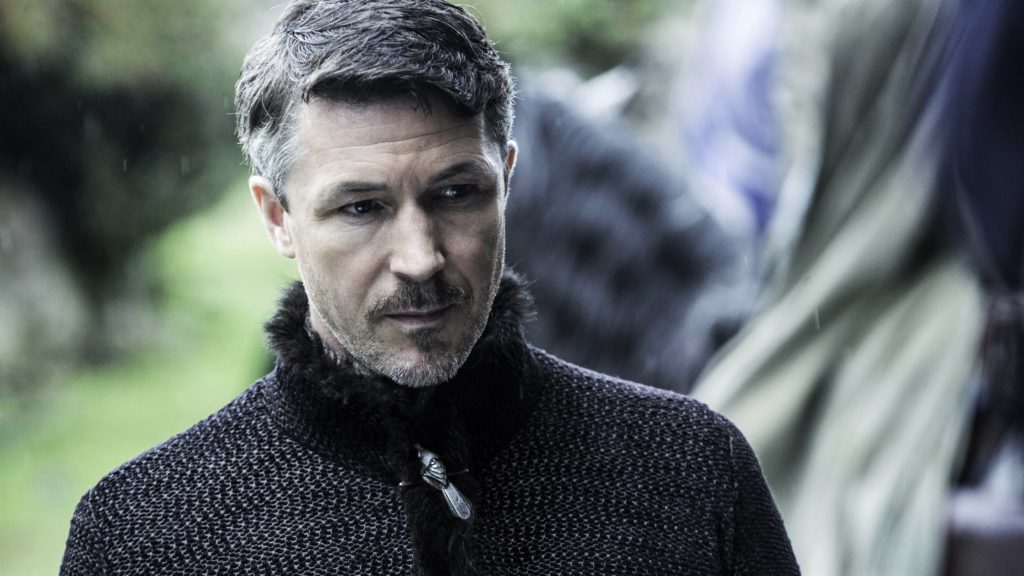
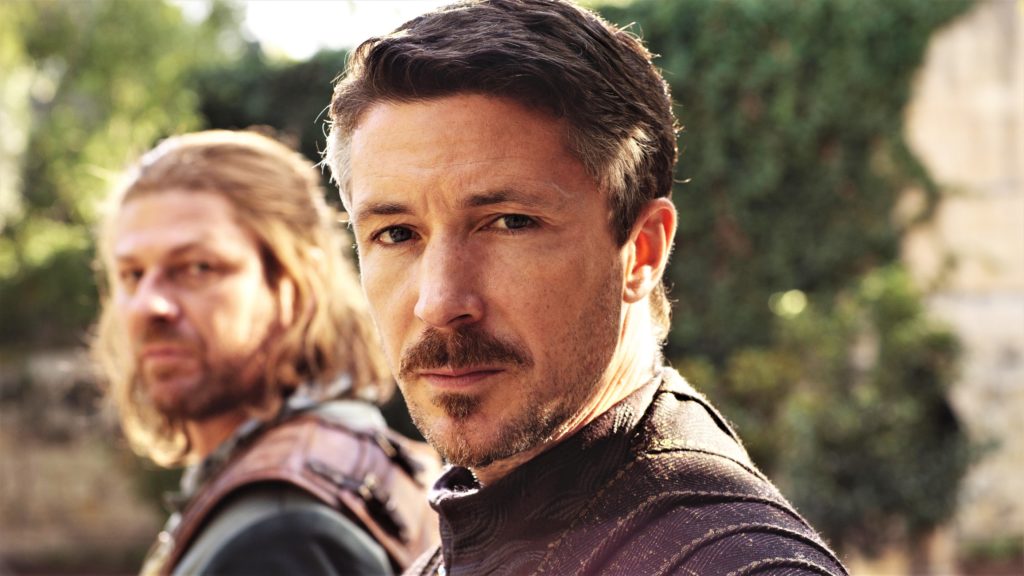
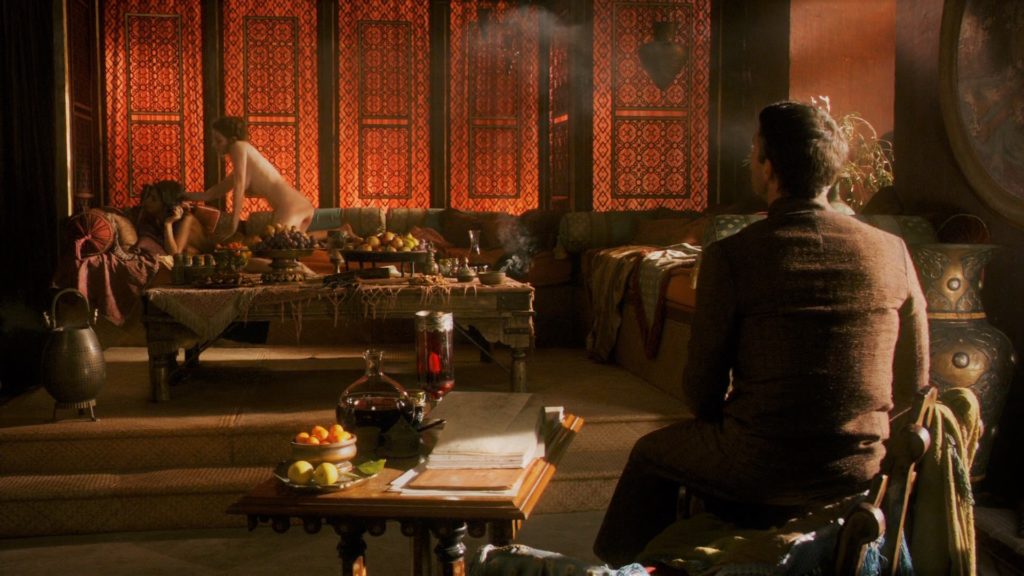
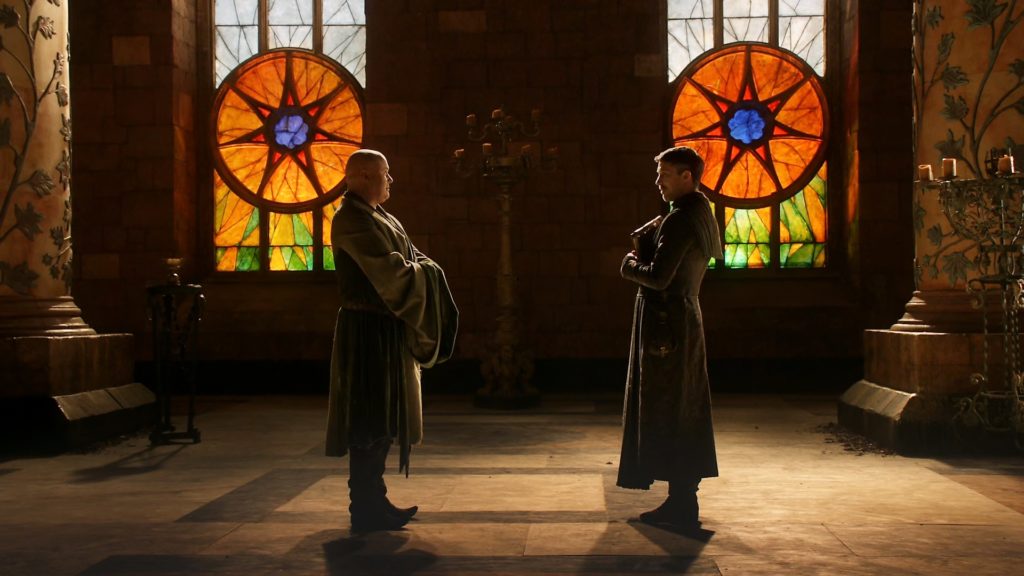
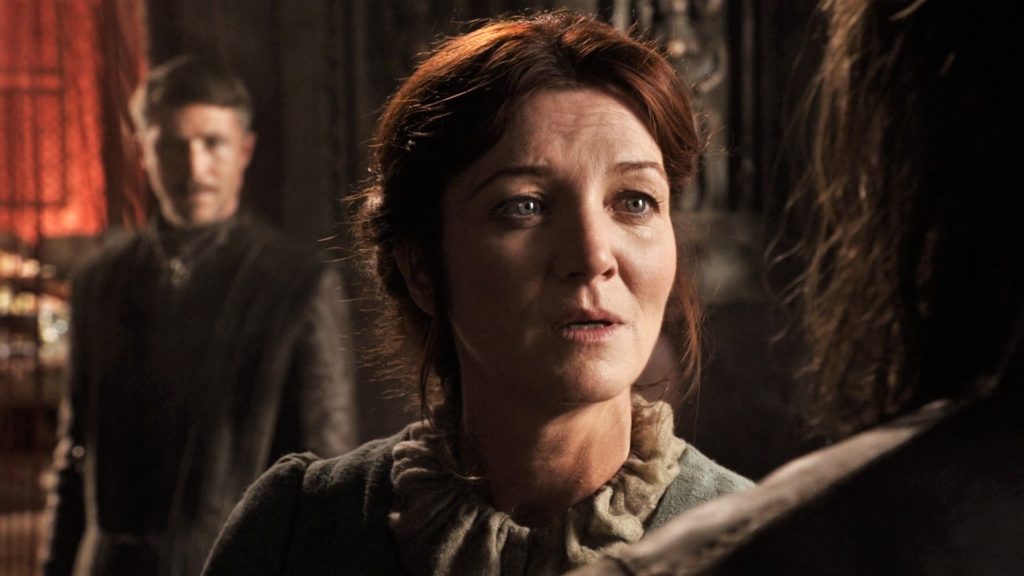
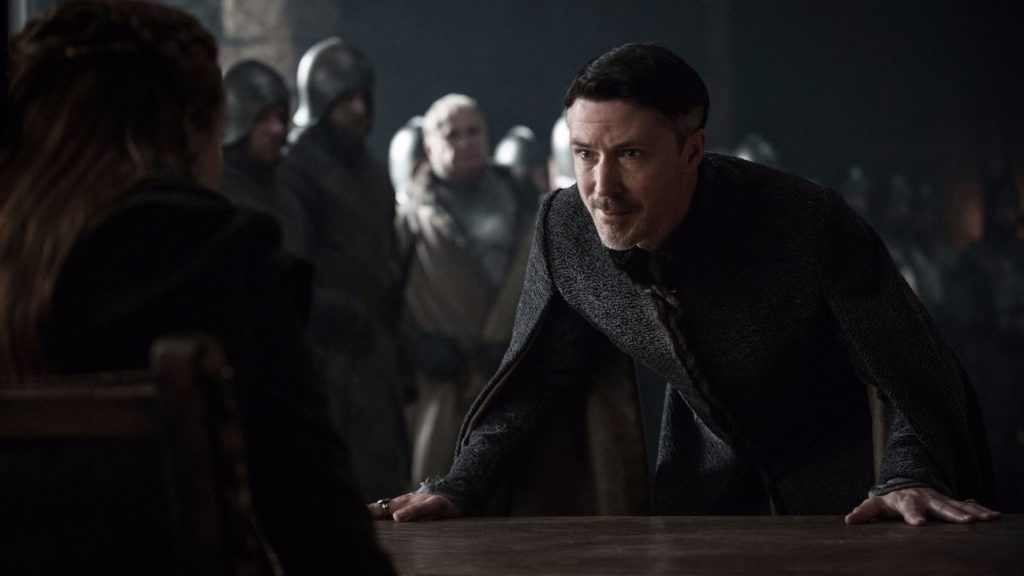
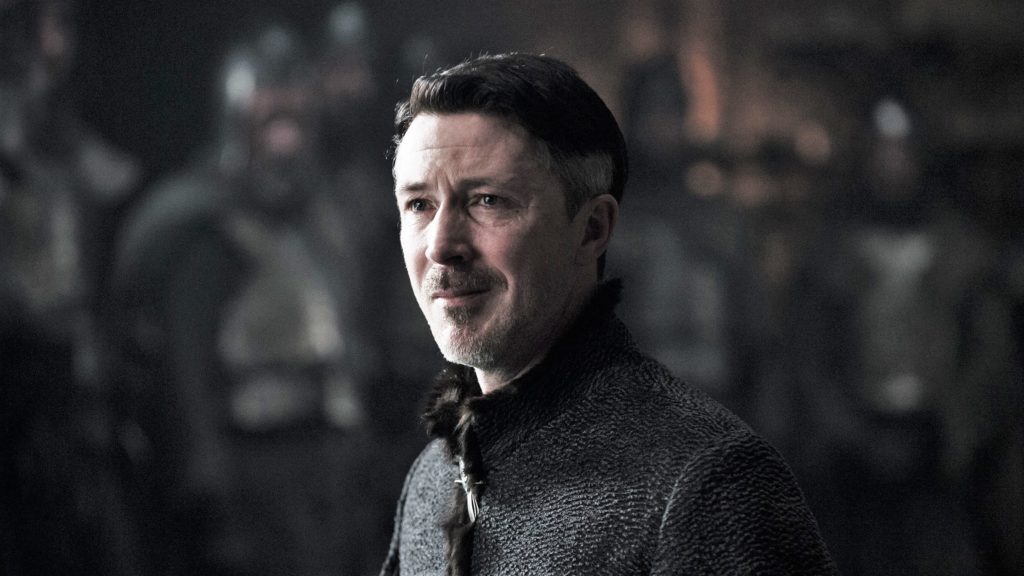
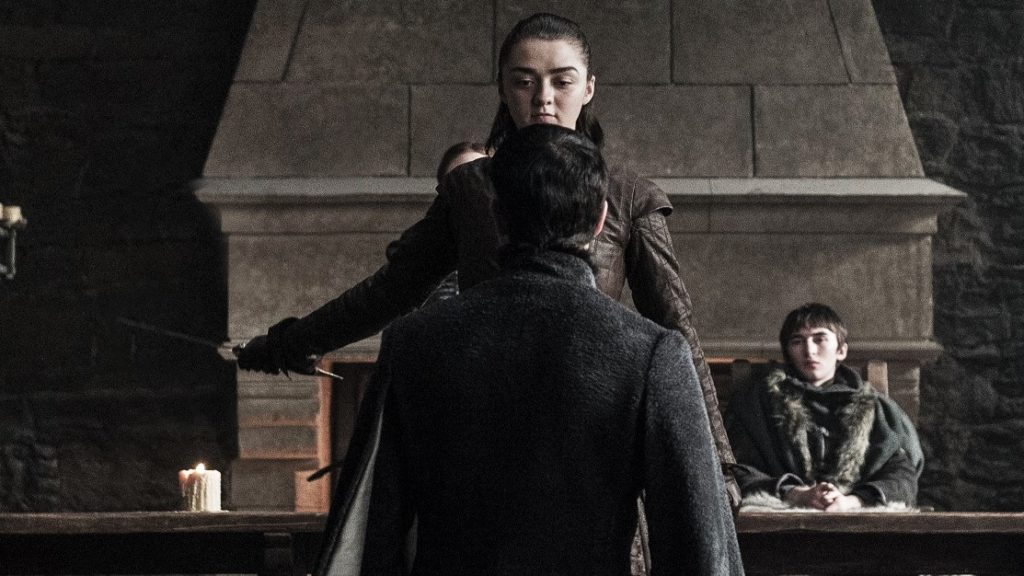

No comments:
Post a Comment